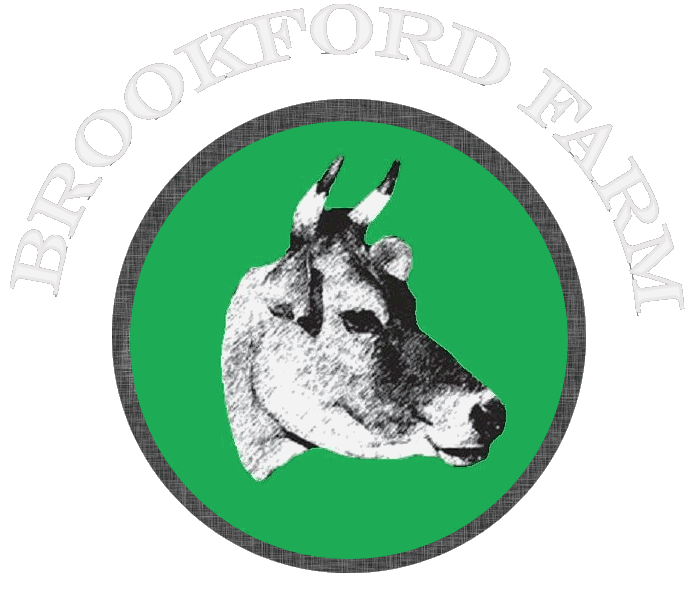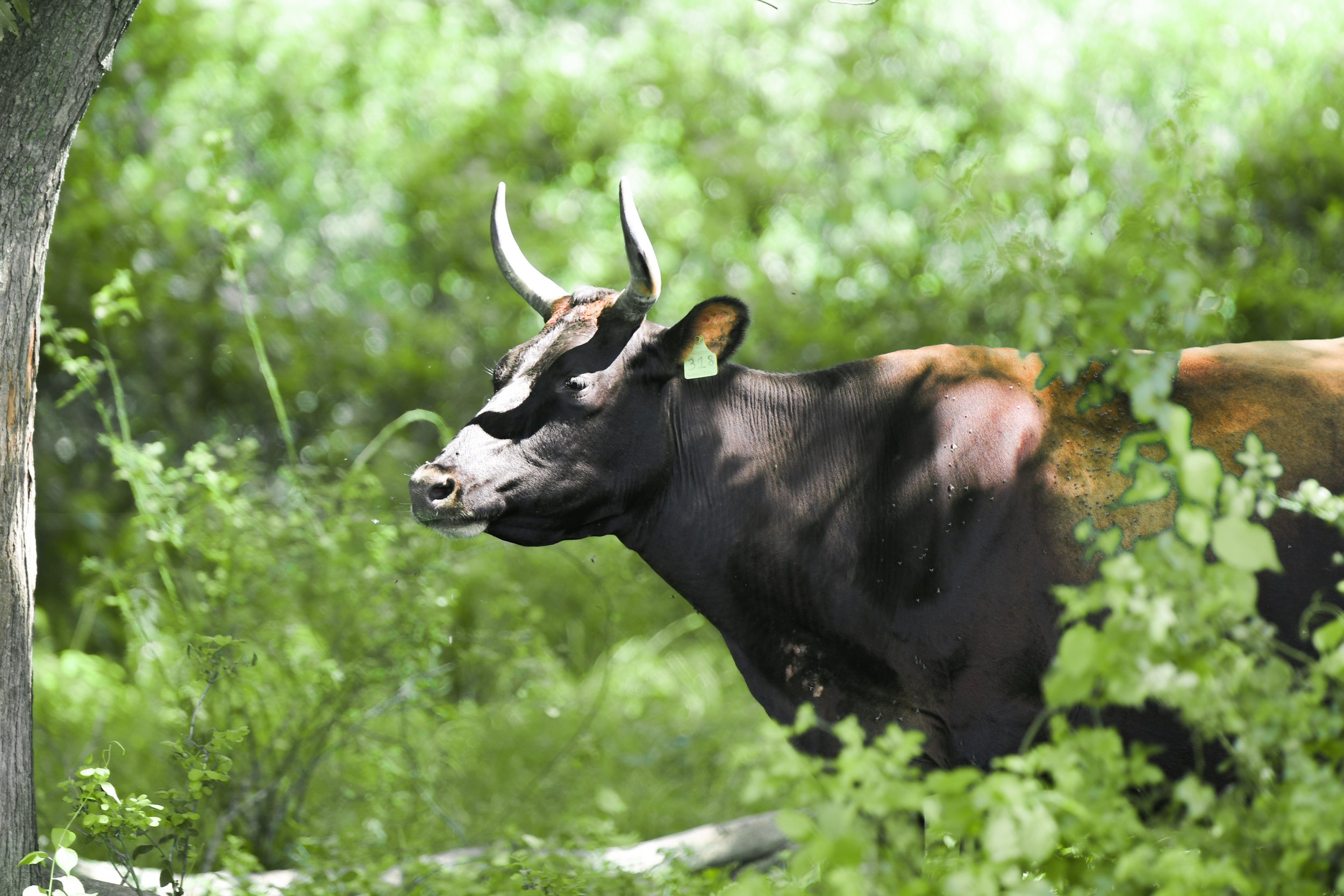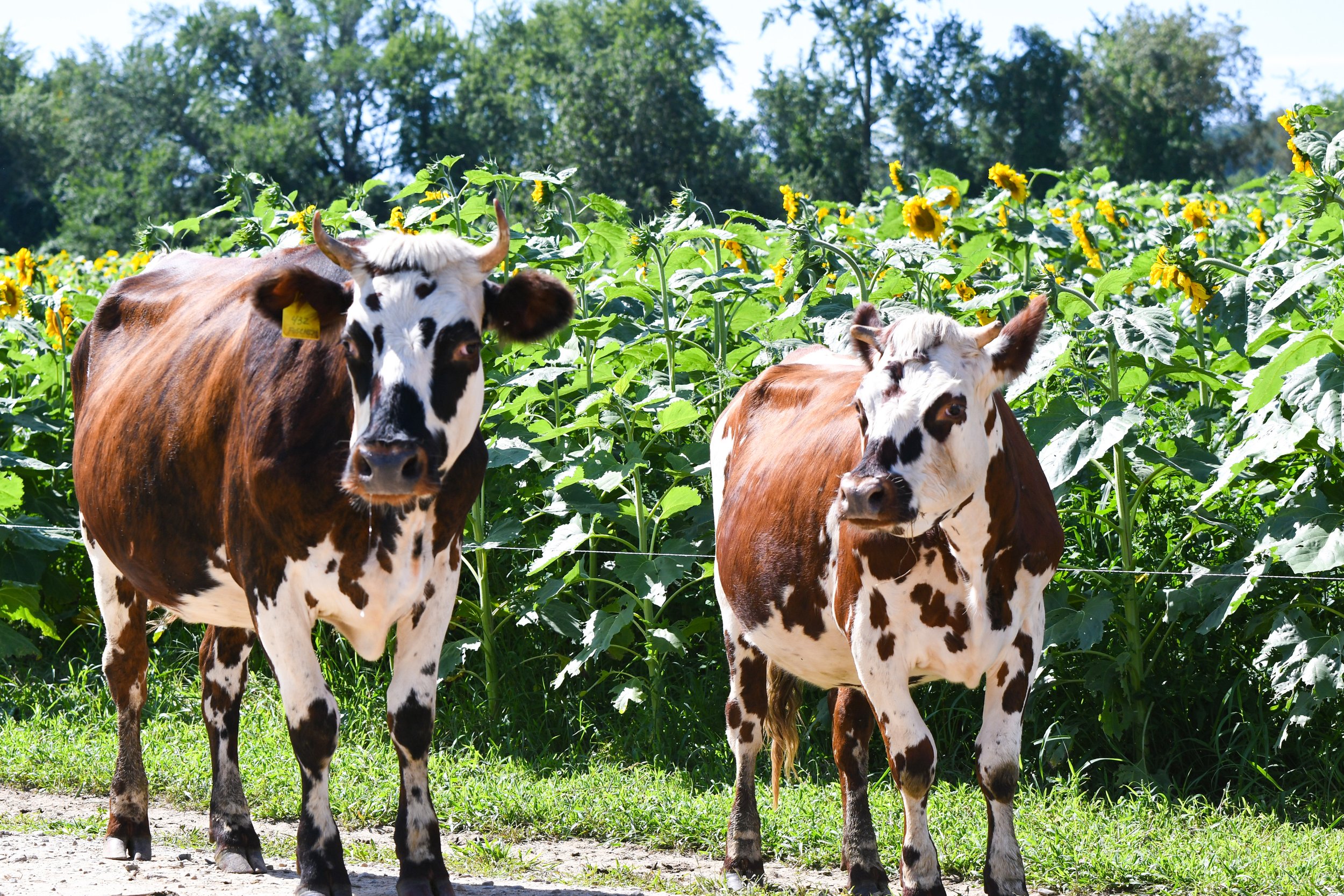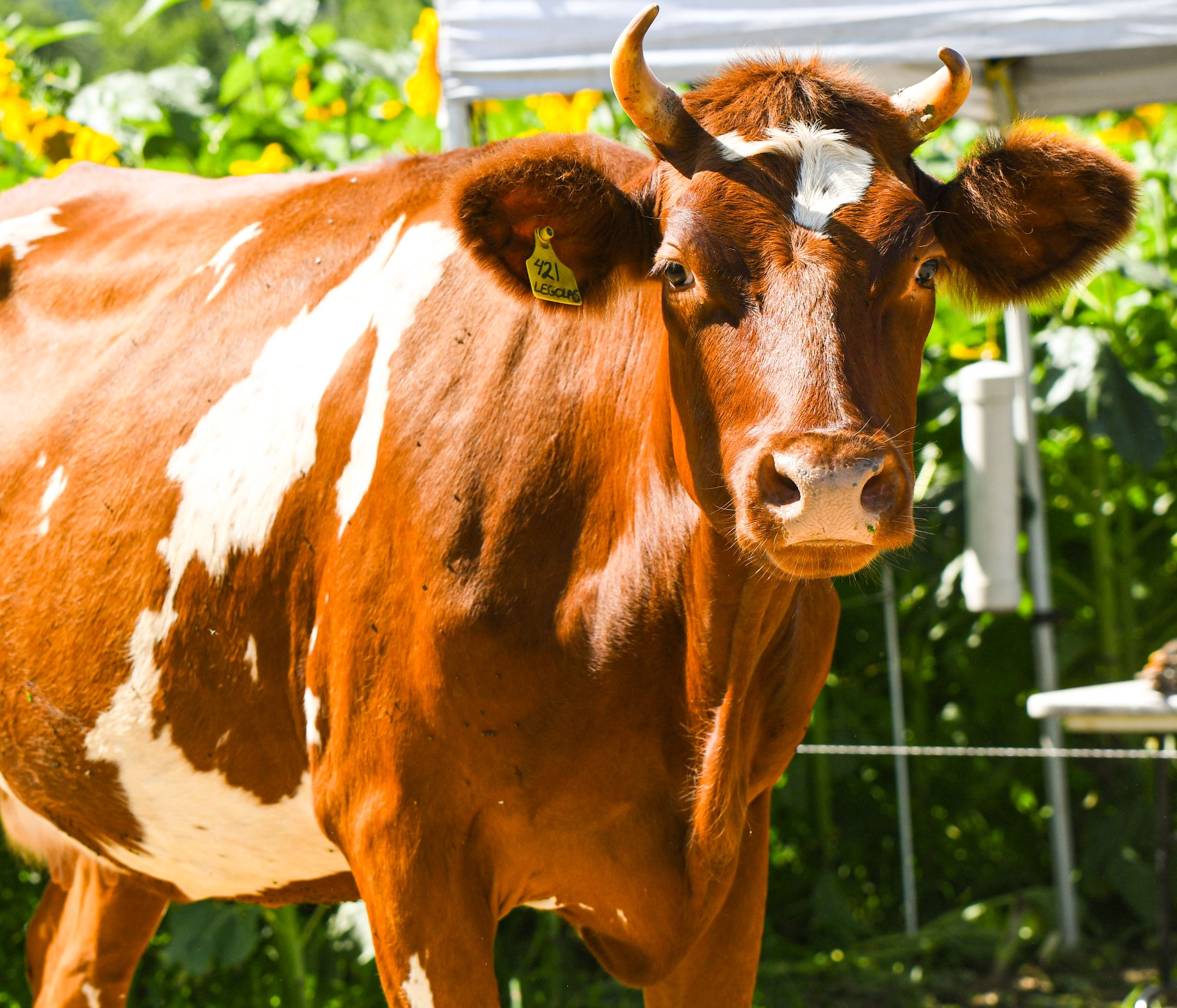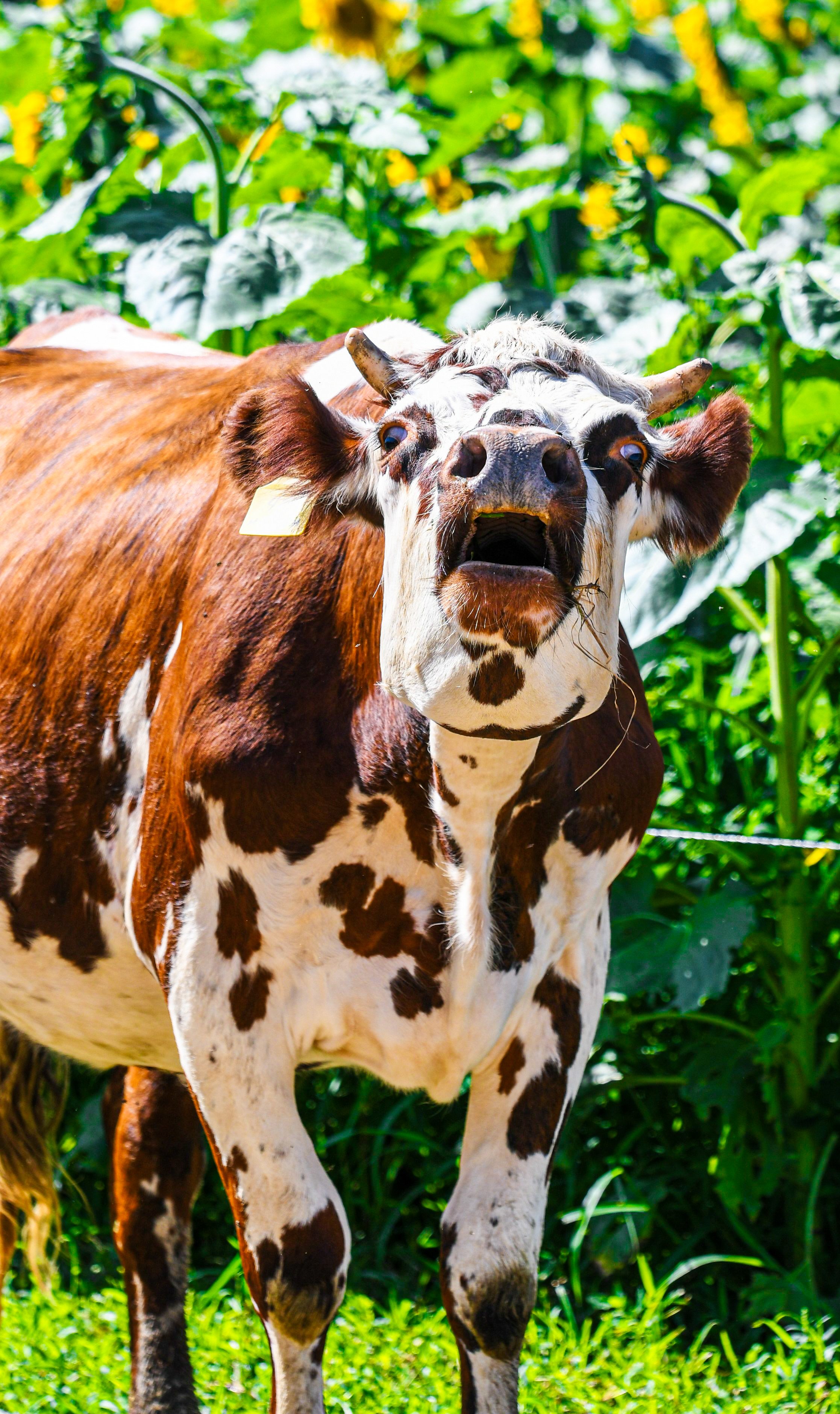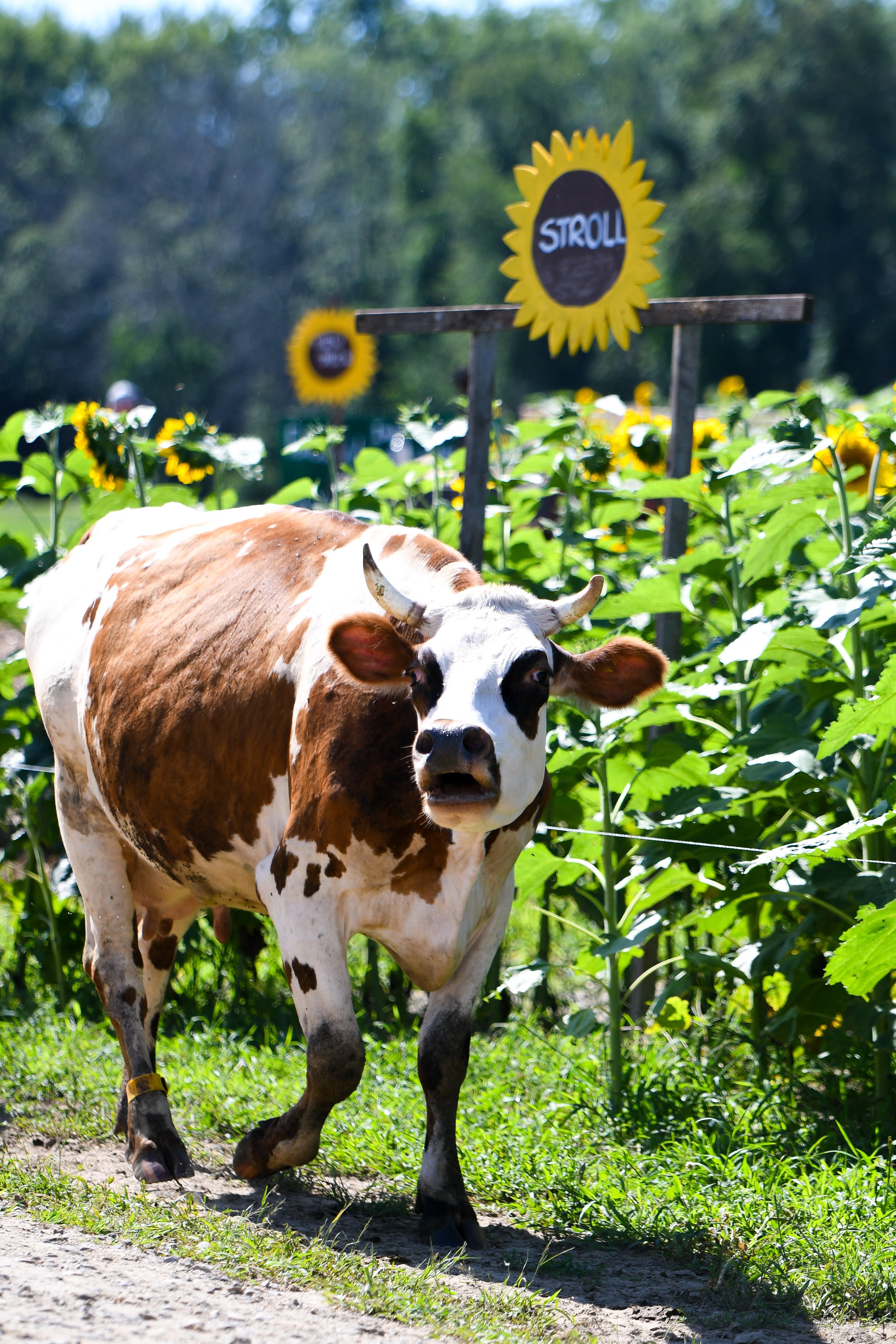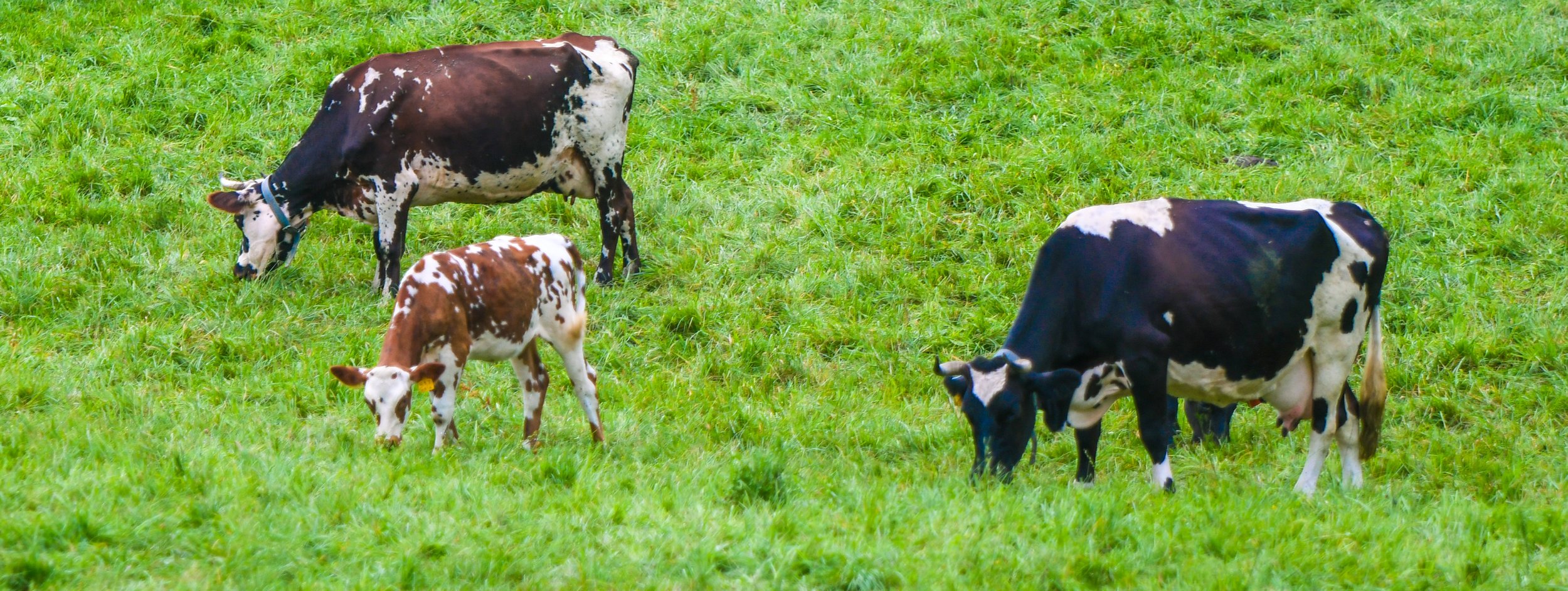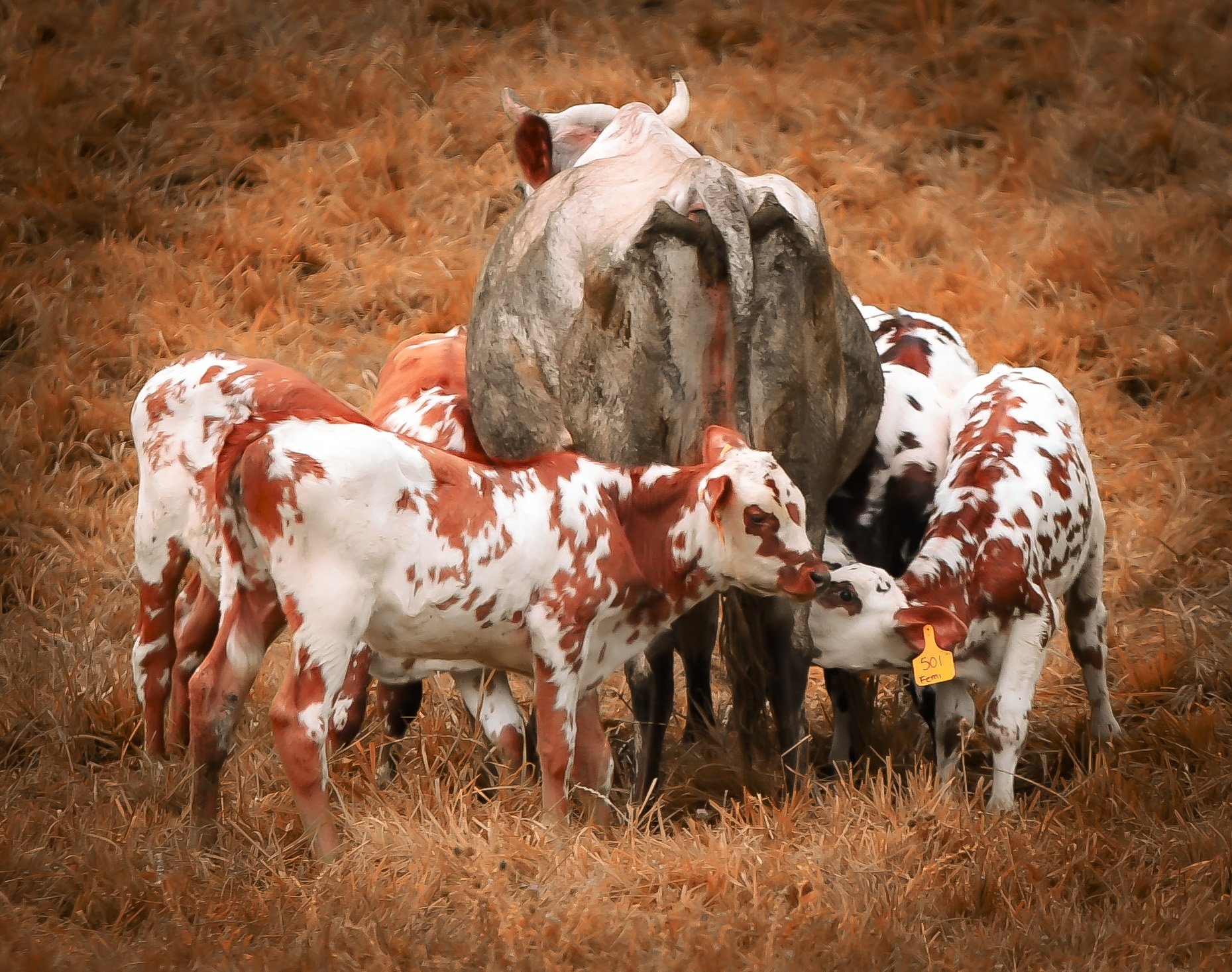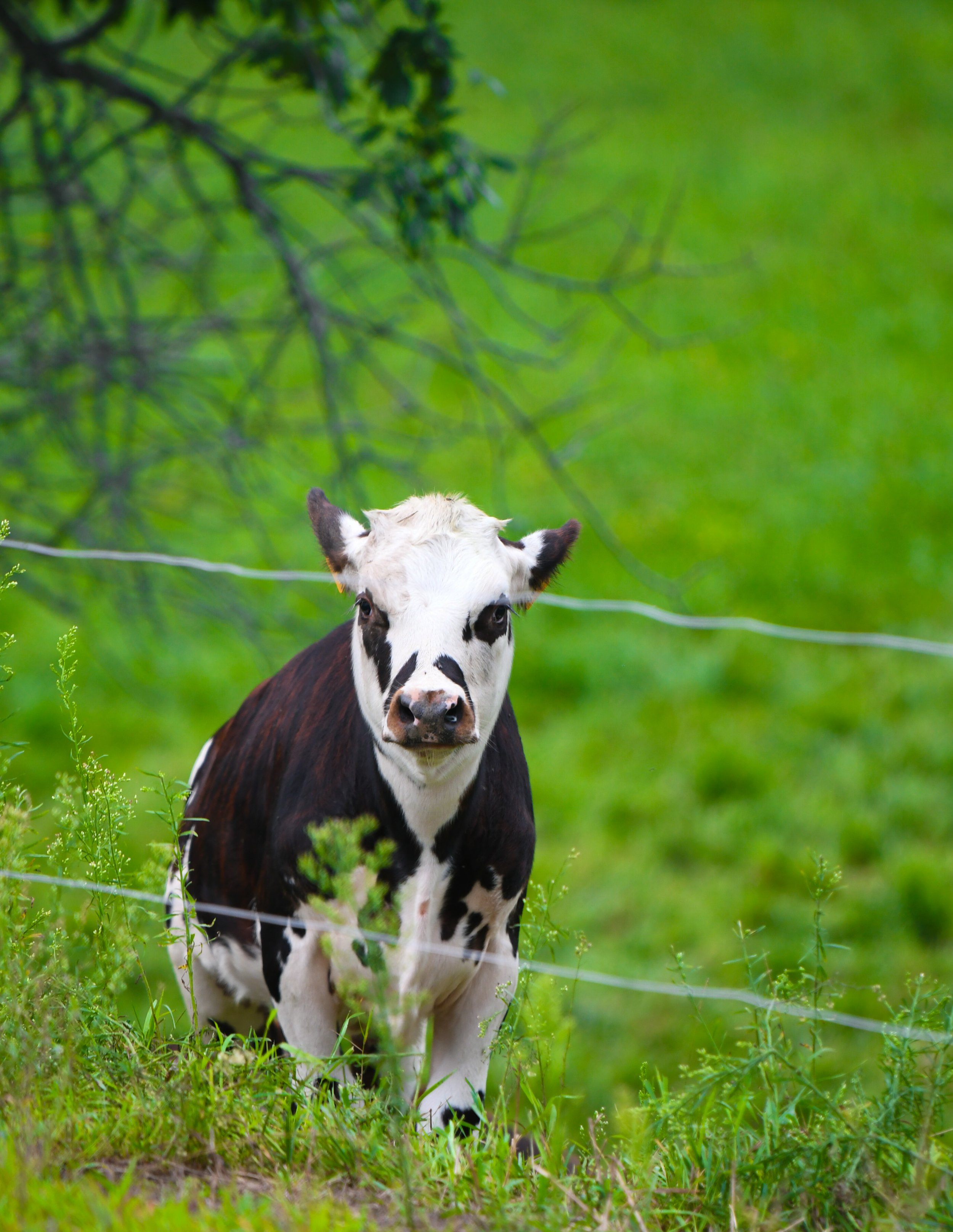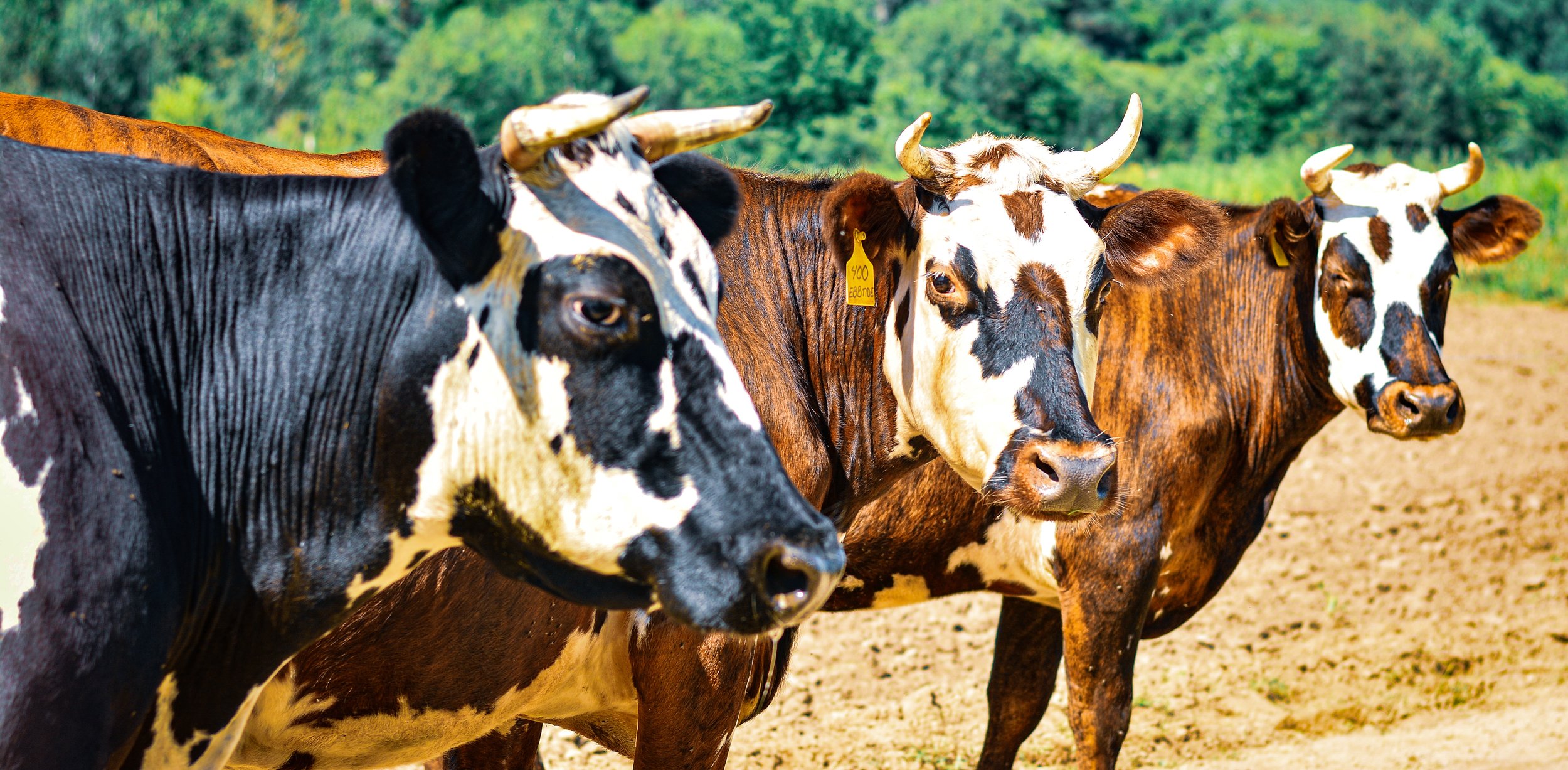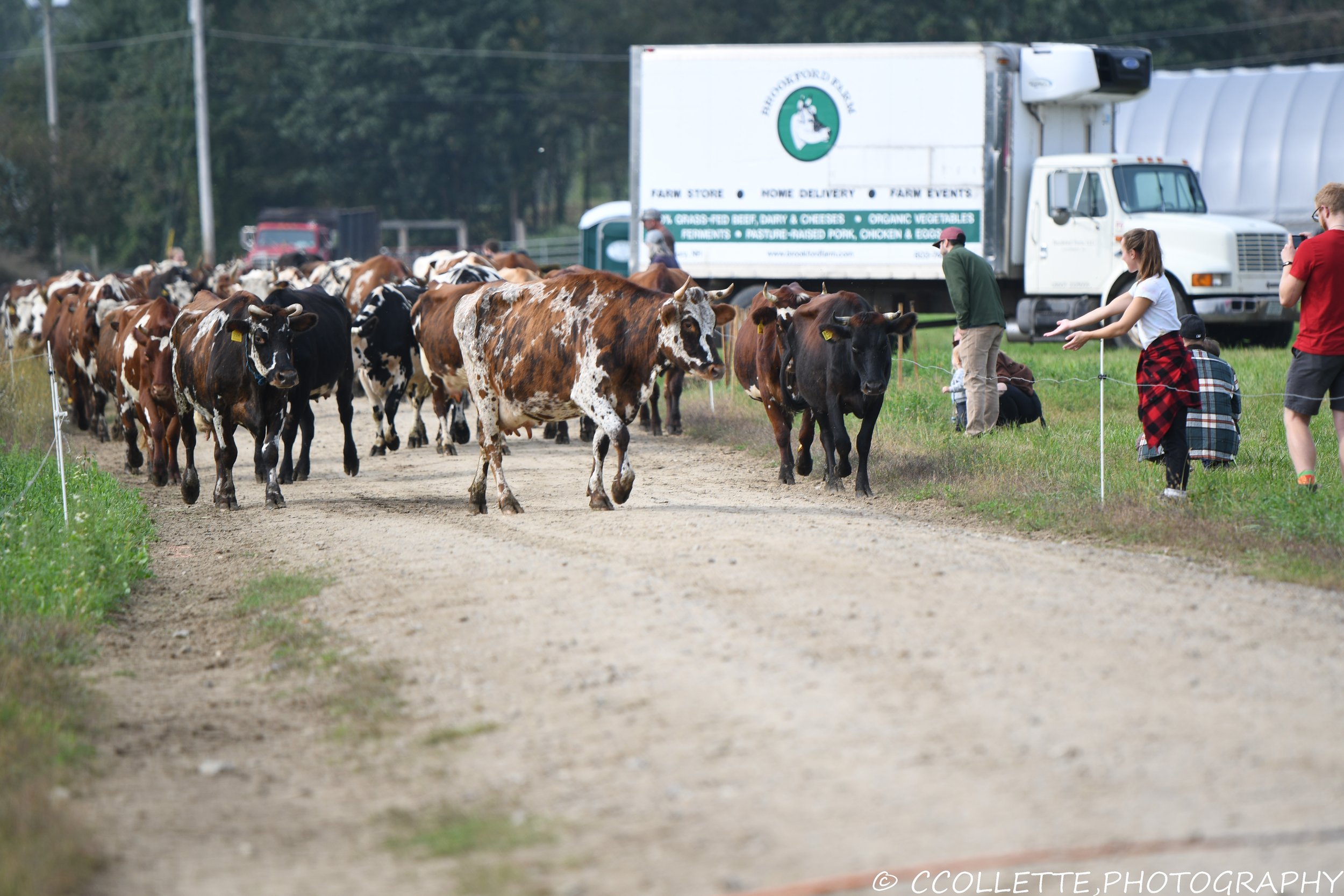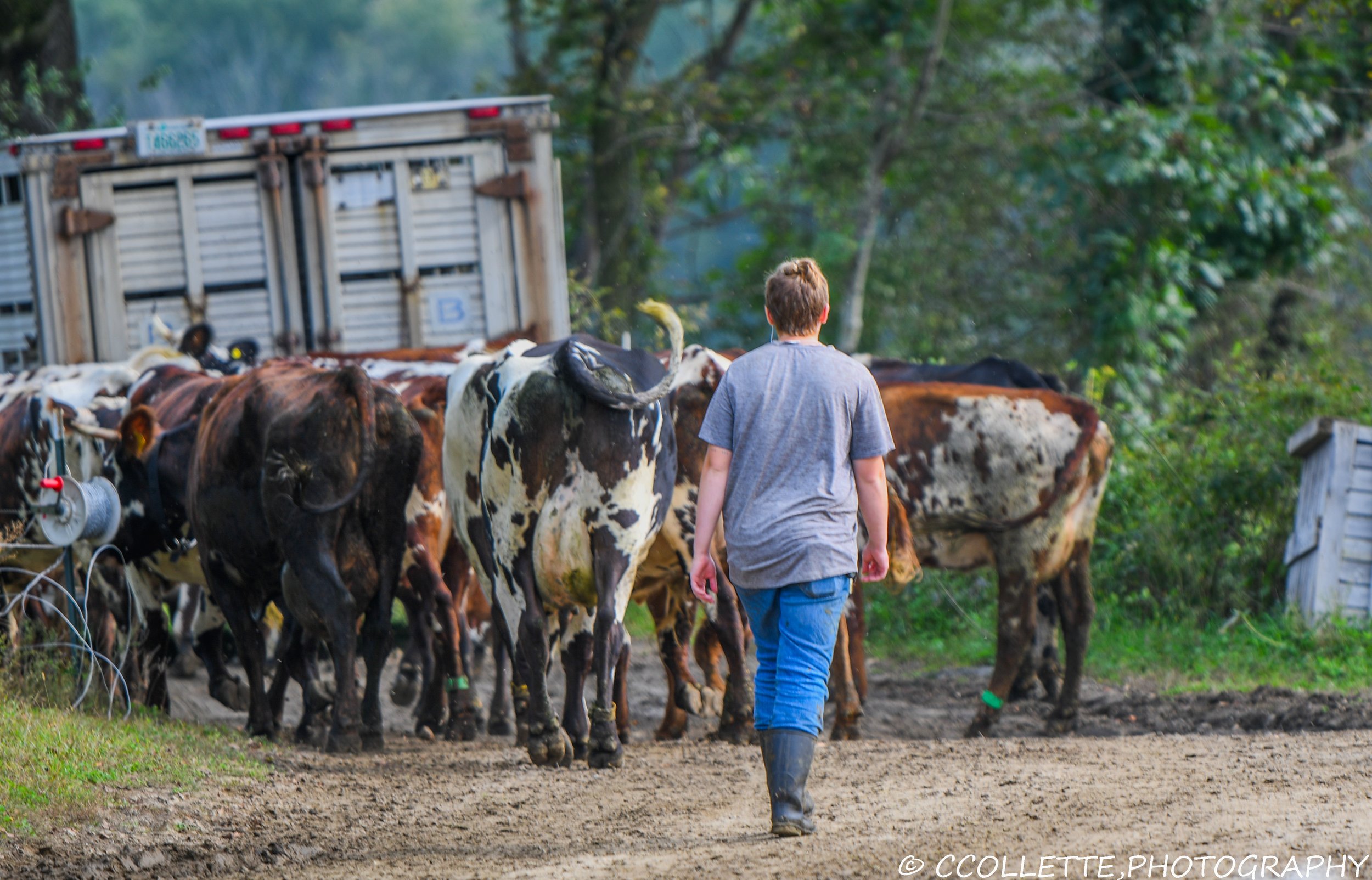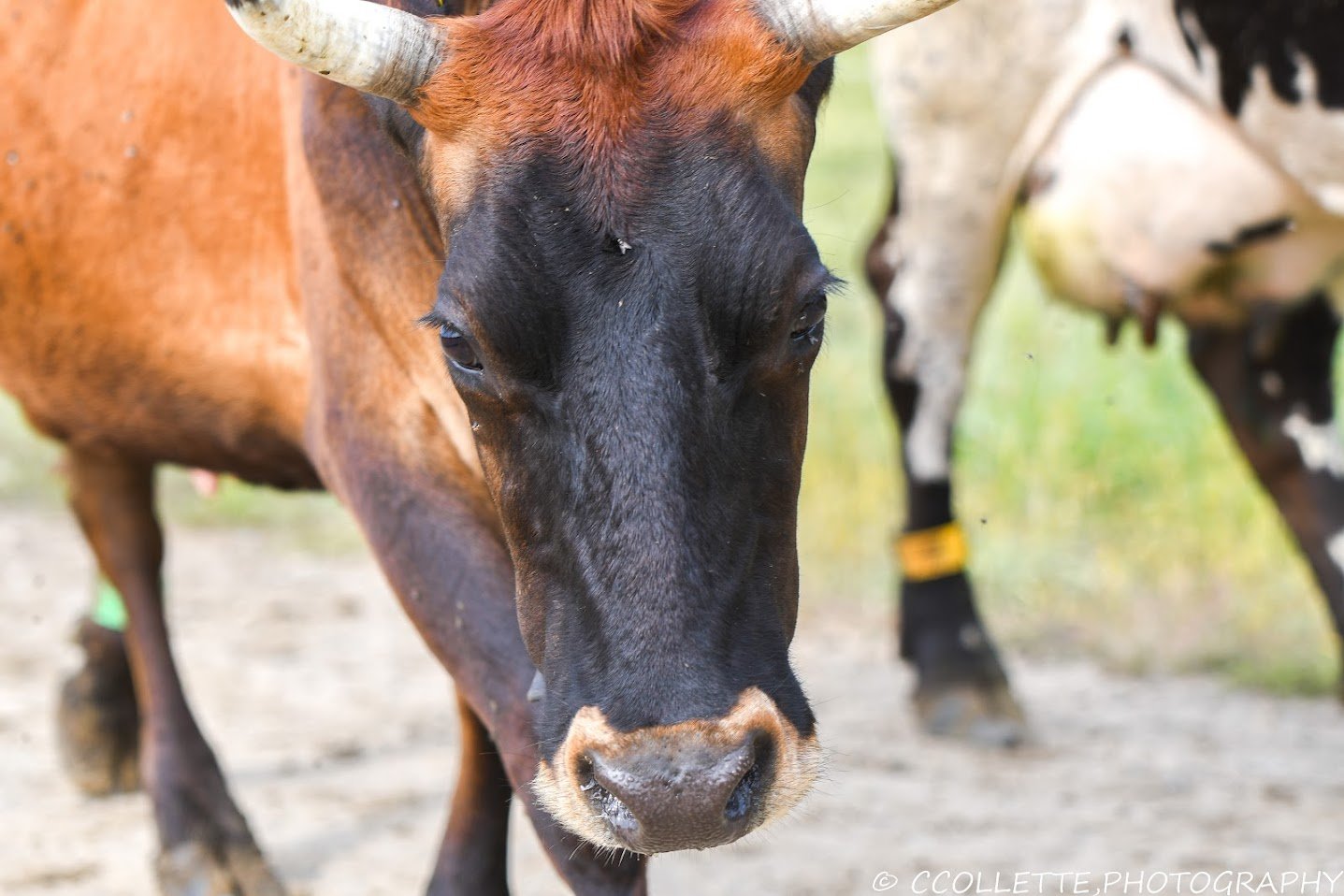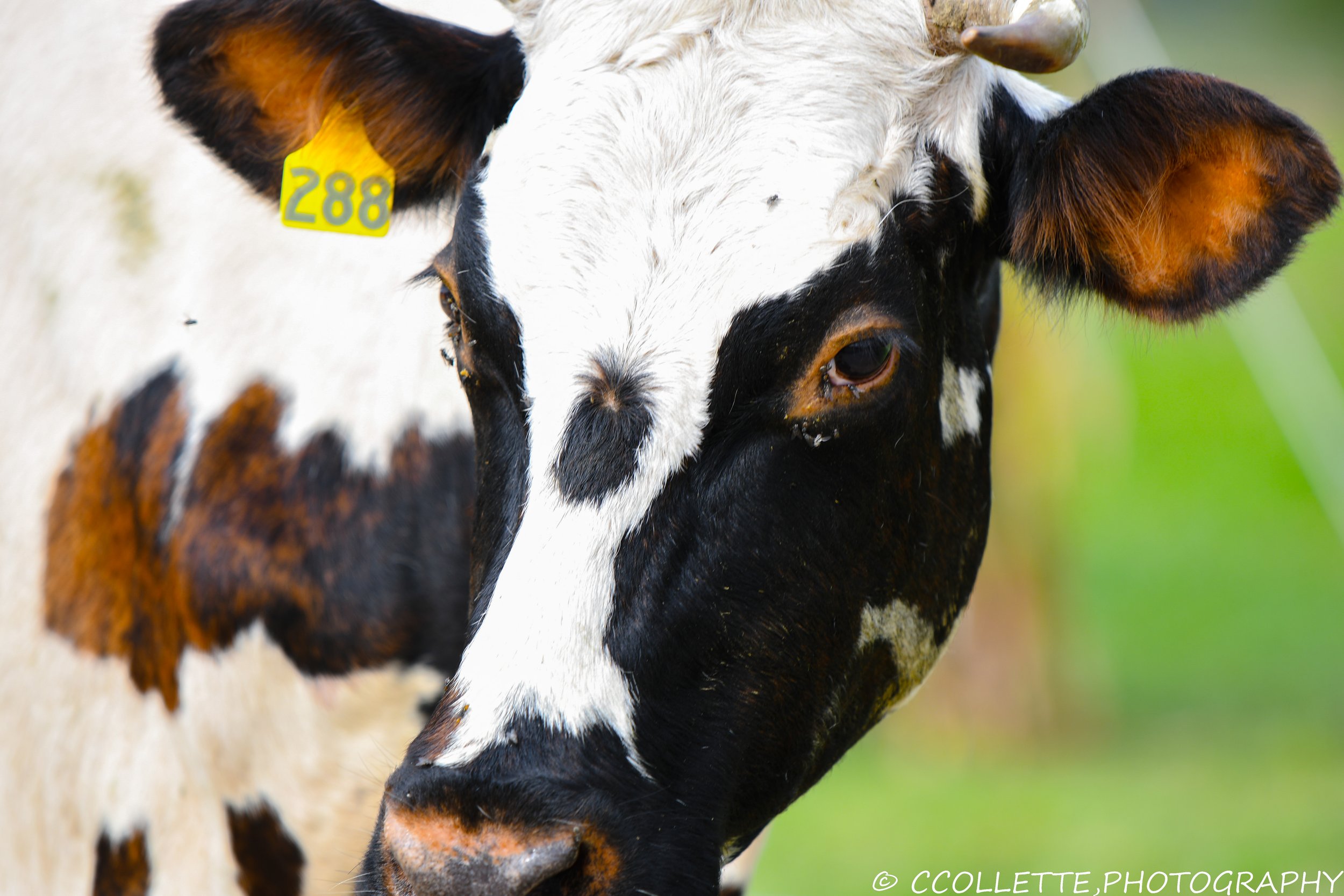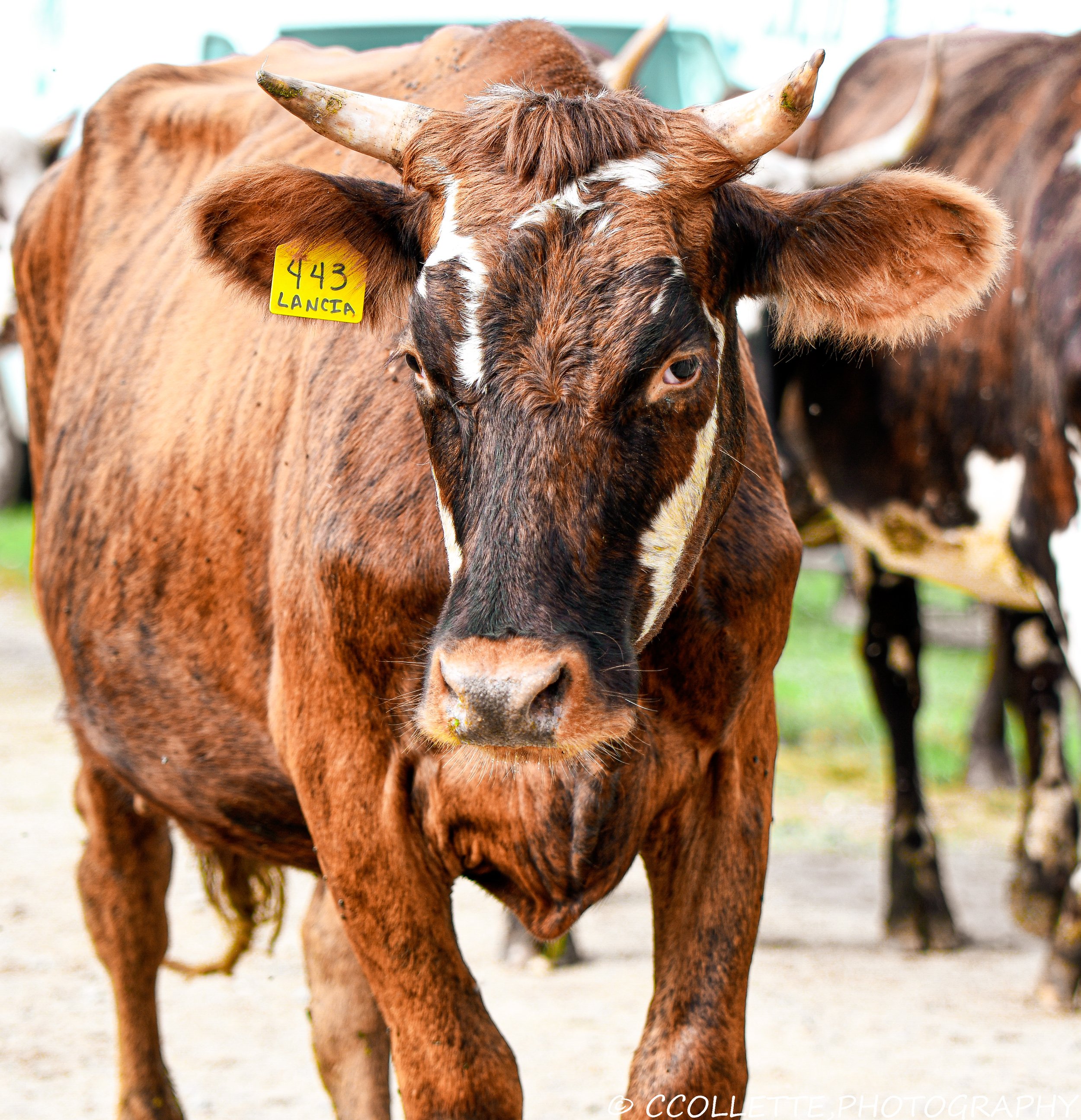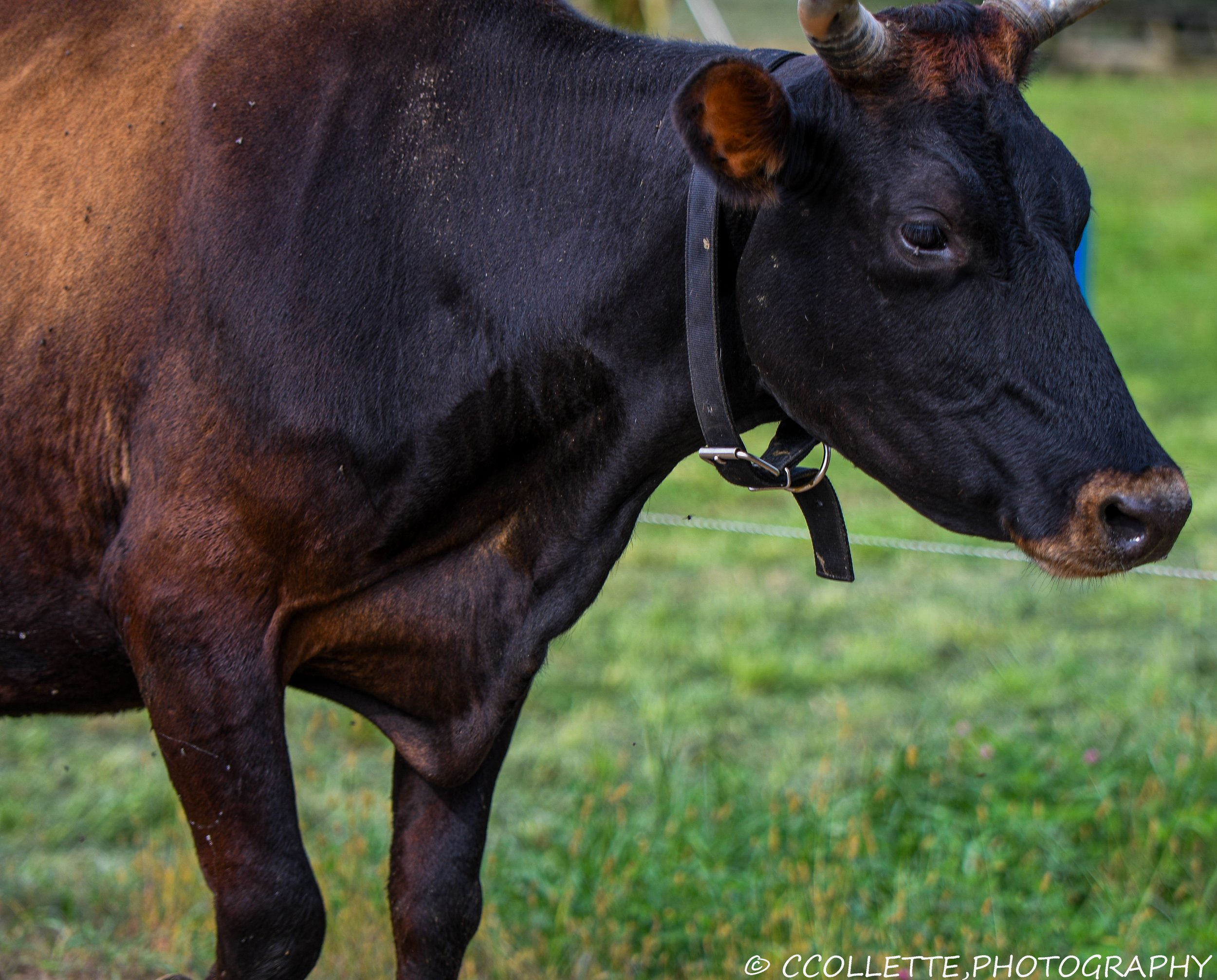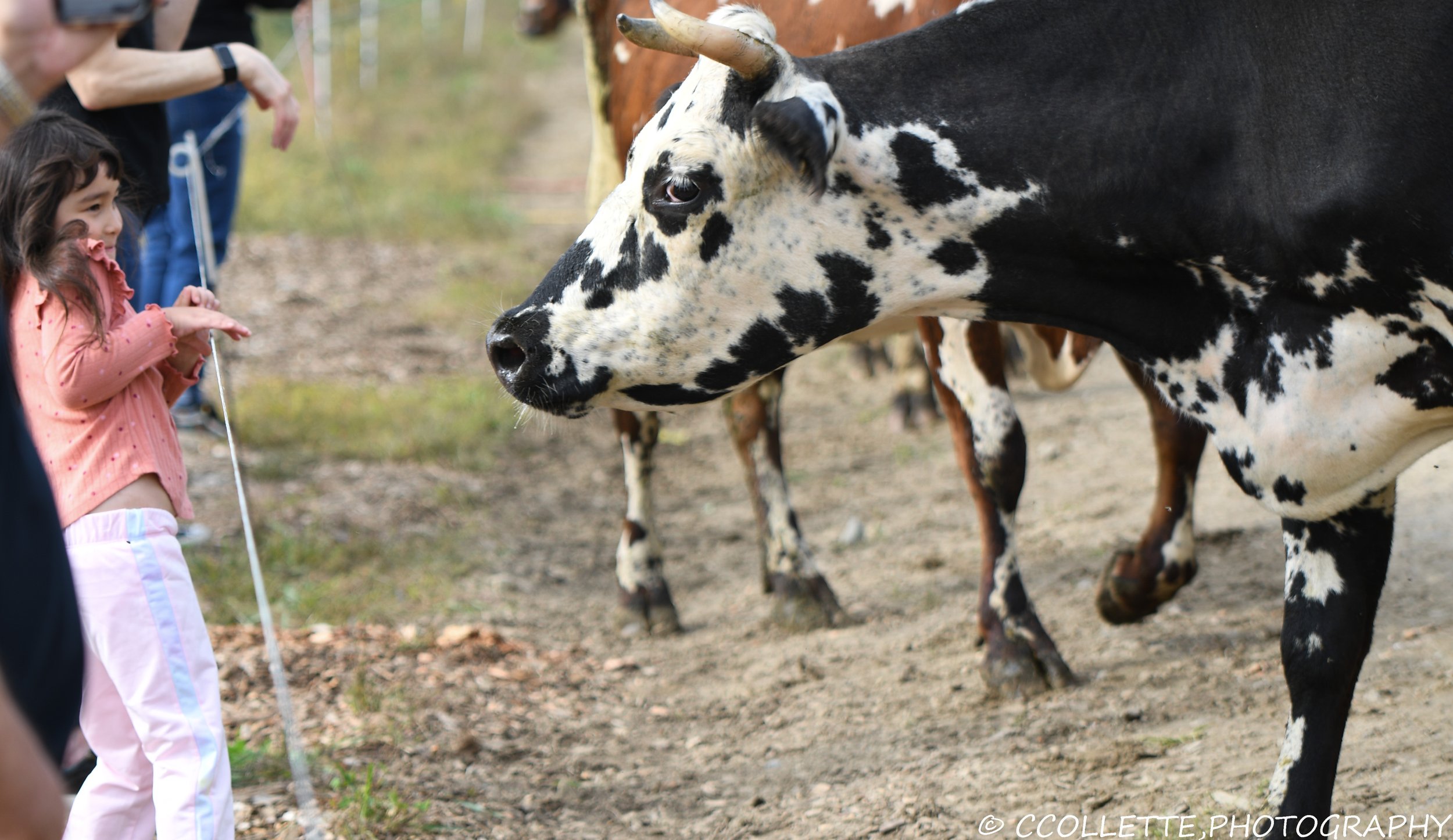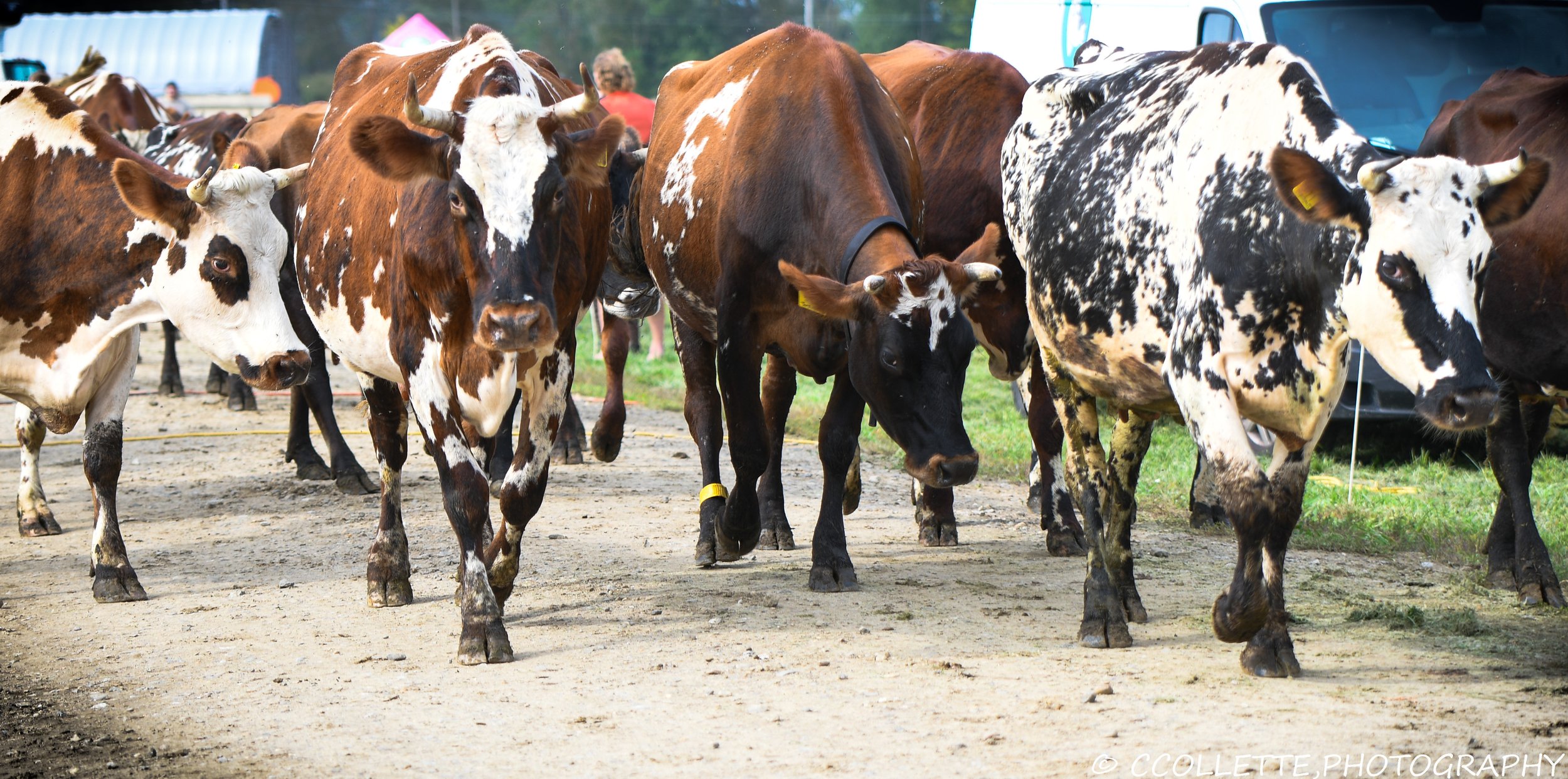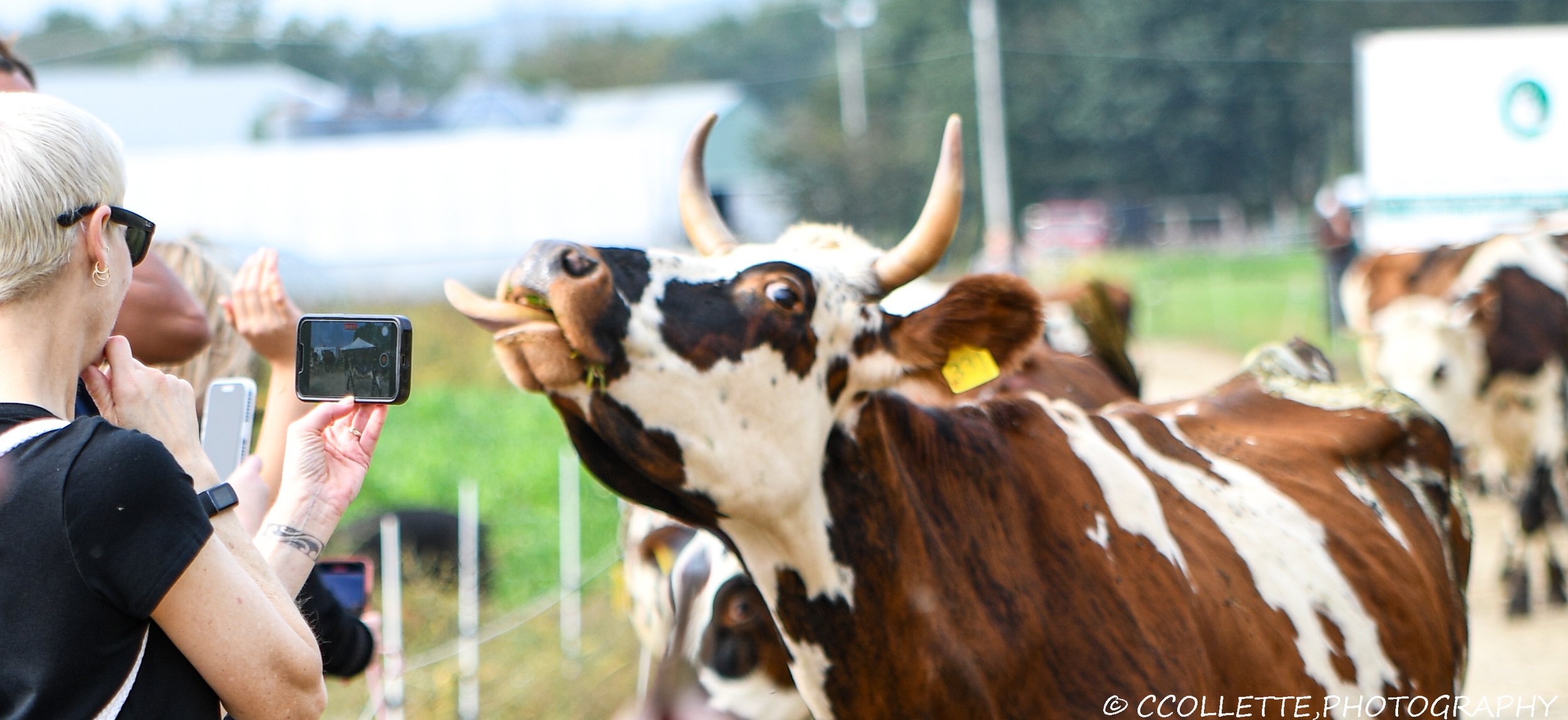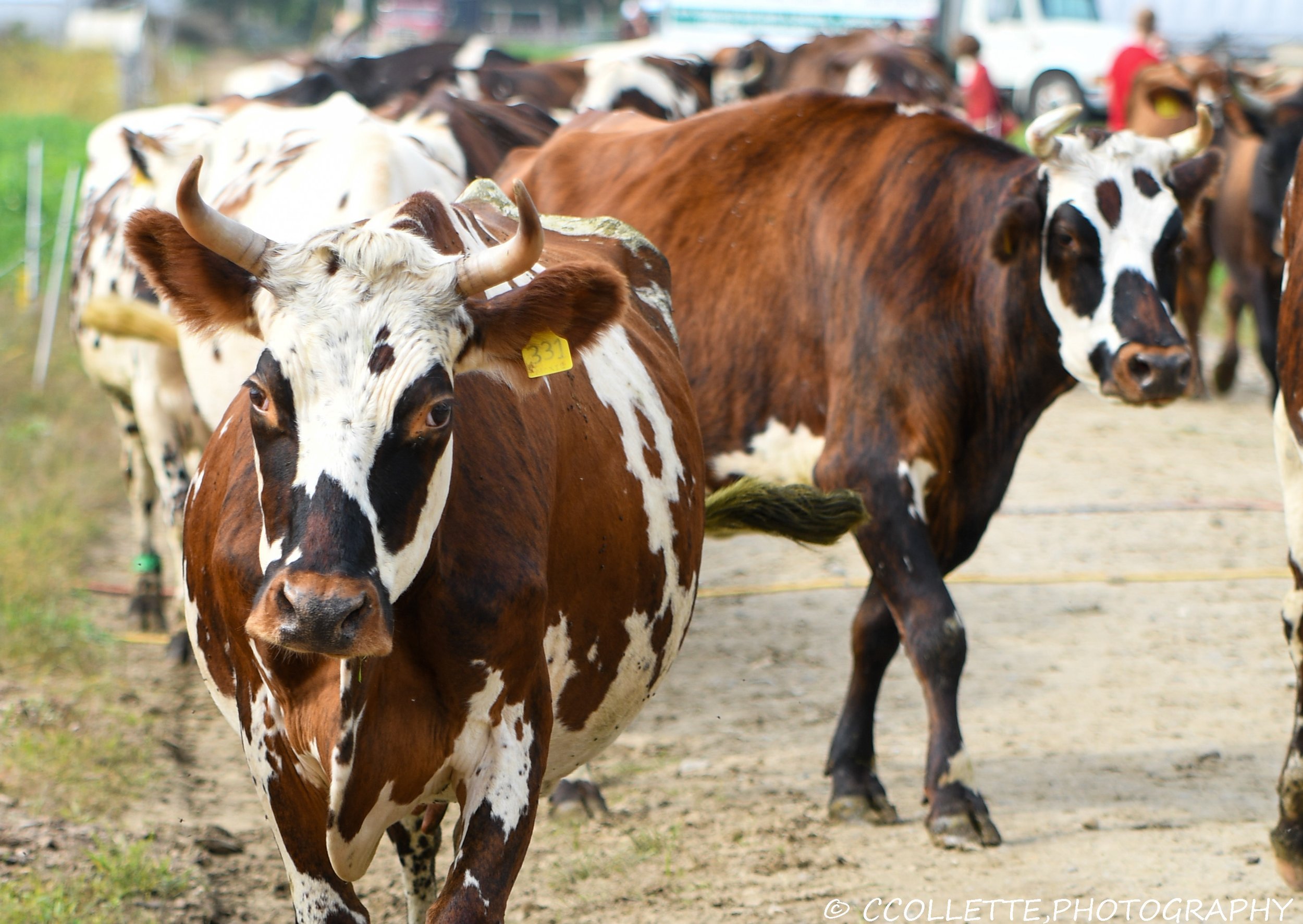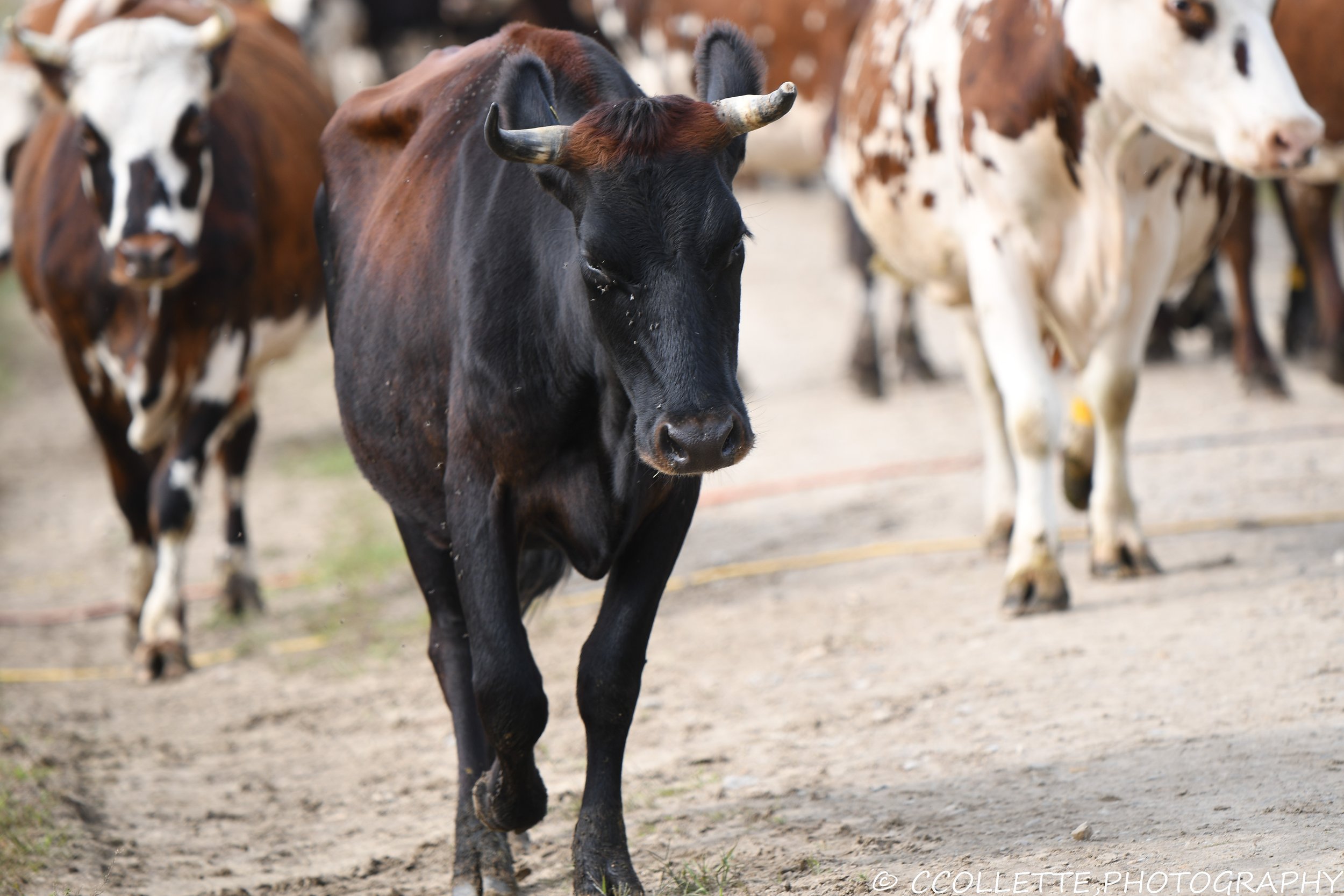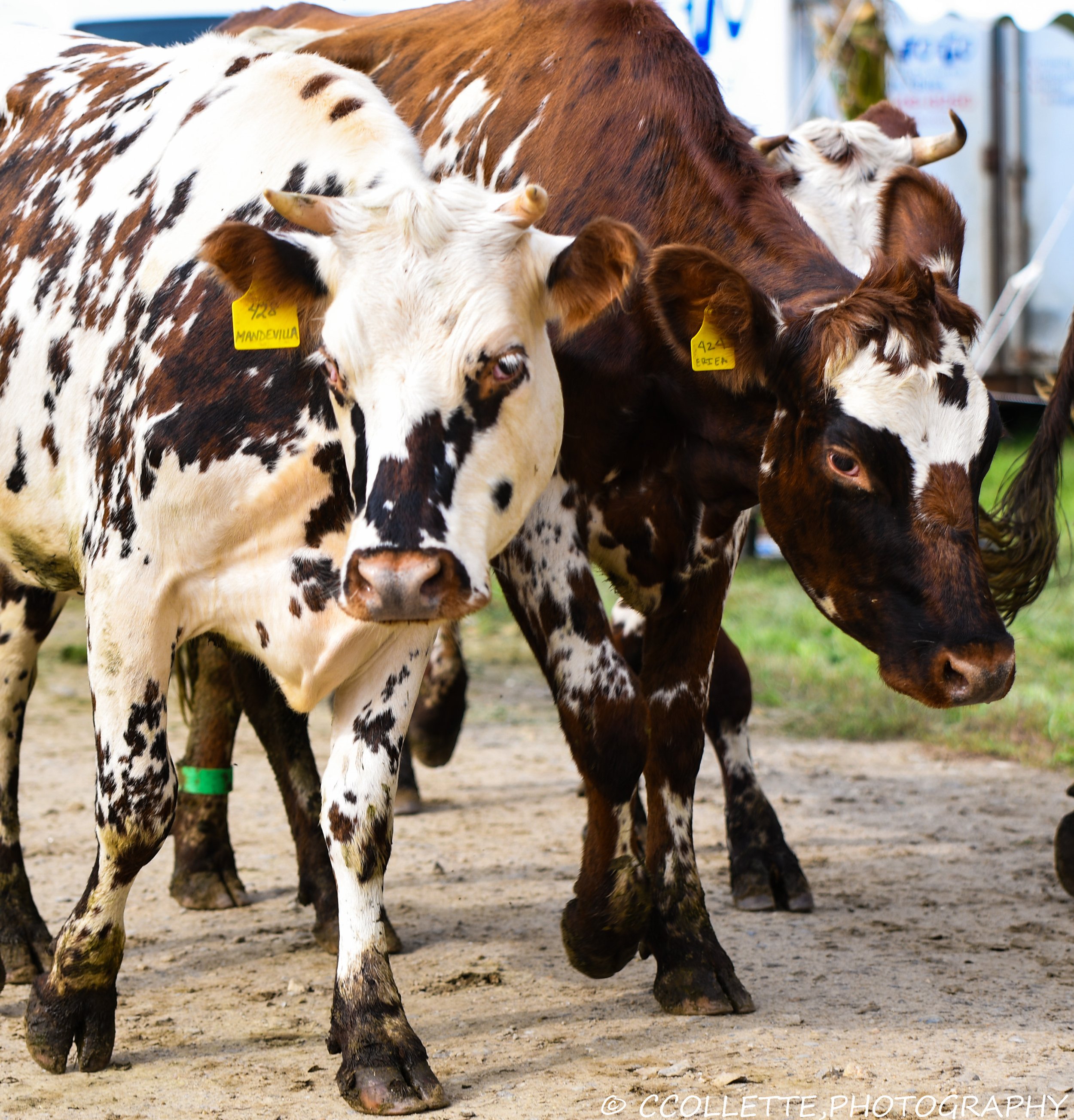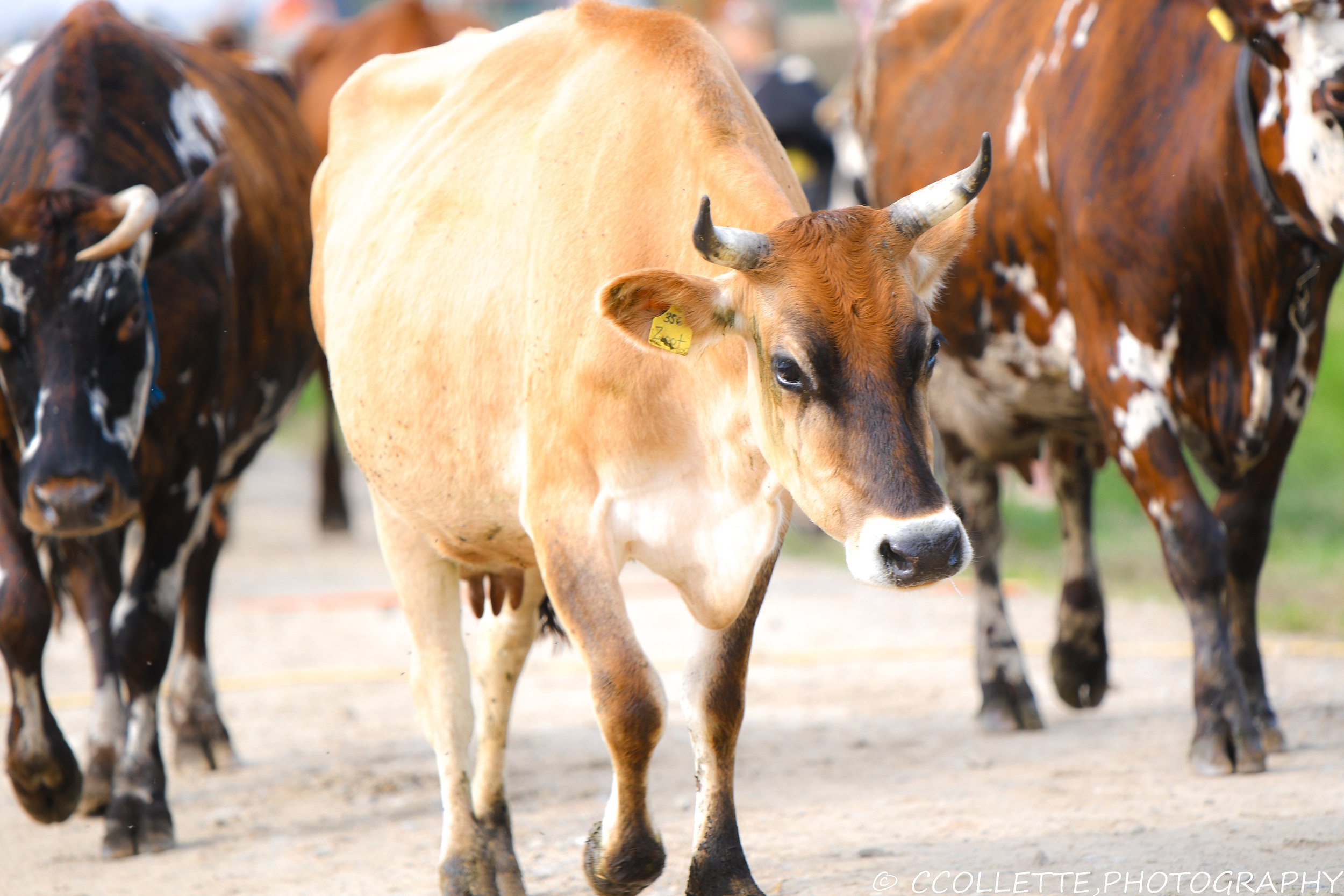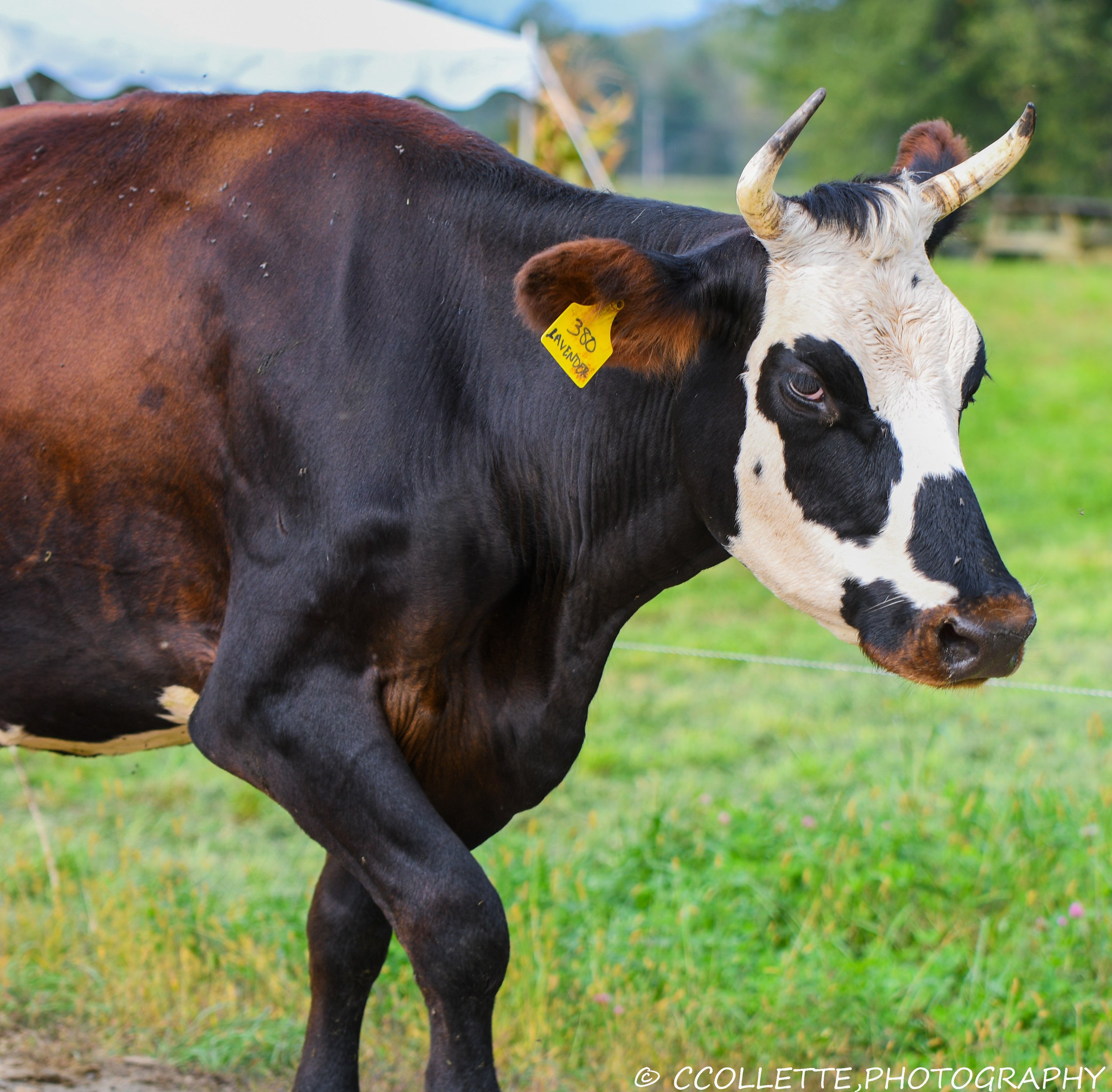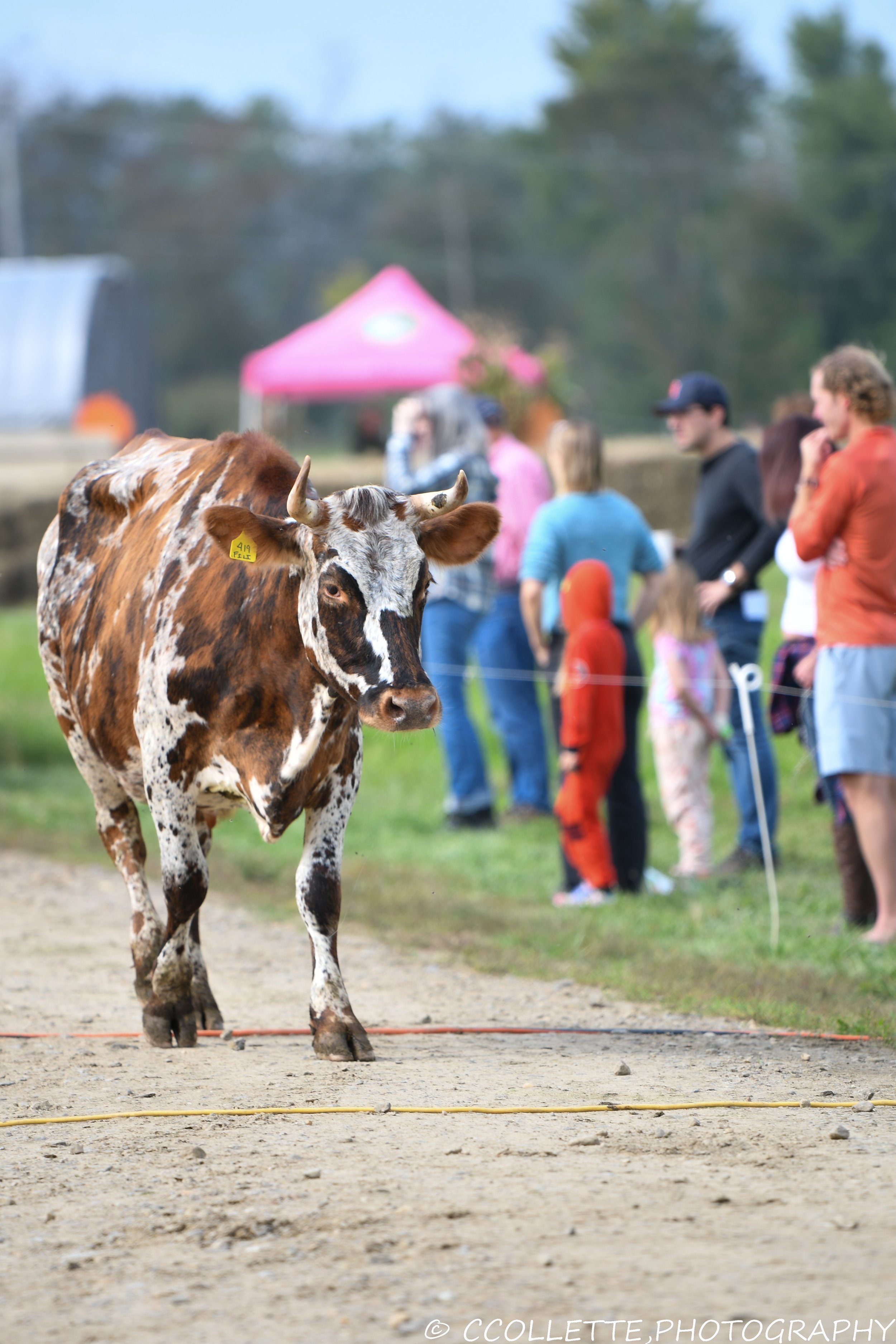Our Cows
Dairy Herd:
The cows are the heart of the farm! Brookford’s milking herd includes about 70 head of mixed, colorful breeds. You will find a good deal of Jersey in there, but also Normande, Brown Swiss, Guernsey, Ayrshire, Dutch Belted, and a touch of Holstein. Though these breeds all have different characteristics, they are all usually very curious and gentle. Every one is given a name starting with the same first letter as her mother.
We have been through testing and all our cows produce the A2 protein. We do still have cows that are A1/A2 (that is only about 20%). We also breed with an A2 bull.
Diet:
From May through November our cows are intensively rotated through our pastures. Our cows are 100% grass fed.
Through the winter they are mostly in the barn being fed bales of dry hay and wet “haylage”—bales that are wrapped wet and allowed to ferment into a sort of cow sauerkraut! Our cattle have access to free choice minerals, including organic kelp meal. They also enjoy our own organic certified vegetables - ranging from radishes, kale to sweet potatoes! Brookford milk is always free of antibiotics, and we do not treat our animals with any hormones. When our animals get sick, we use a combination of herbal and homeopathic treatments to aid in their speedy recovery.
Horns:
If you come out to visit our cows, you will notice that a majority of the herd carry horns on their heads. All cattle grow horns, unless they are naturally polled (horns are inherited as an autosomal recessive trait, for all the scientists out there). On Brookford Farm, we believe the cows should keep their horns. It gives them their own character and a greater awareness of their surroundings, allowing them more self-confidence. There are some major nerves that lead into the horns, making the dehorning process painful and potentially neurologically damaging. In addition, the horns are used for thermoregulation in the summer, when blood flow through the horns increases to dissipate heat. A German study even shows that milk from cows with horns is much easier to digest than without. The downside of horns is that they often use them to defend themselves and their place in the hierarchy both in the barn and on pasture, which is why horned cattle require more space.
Calves:
Our calves are born on the farm almost all year round (with breaks during the temperature extremes). After getting colostrum and transition milk from their mother for the first couple days of their lives, we train calves to drink off of one of our nurse cows. This saves us a lot of time and allows the calves to drink whenever they are hungry, rather than wait for bottle feedings. They are weaned at about four months of age and rotated on pasture at Canterbury Shaker Village, or kept inside and fed hay in the winter.
We sometimes have calves available for sale.
Heifers and Steers:
We raise all our own replacement heifers, and keep steer for beef. Heifers usually calve out between 2-3 years of age, when they join our milking herd. Steer are kept on pasture, hay, and free-choice minerals until they’re about 2.5 years old.
Normande cross heifers grazing at Canterbury Shaker Village
Bull:
We usually keep one bull around the herd for breeding. He is typically very content; though we do ask that visitors do not play with him. We breed with a bull that is A2.
We also have breeding age heifers, heifer calves and pregnant heifers available to purchase. Any questions about the cattle at Brookford Farm may be directed to:
